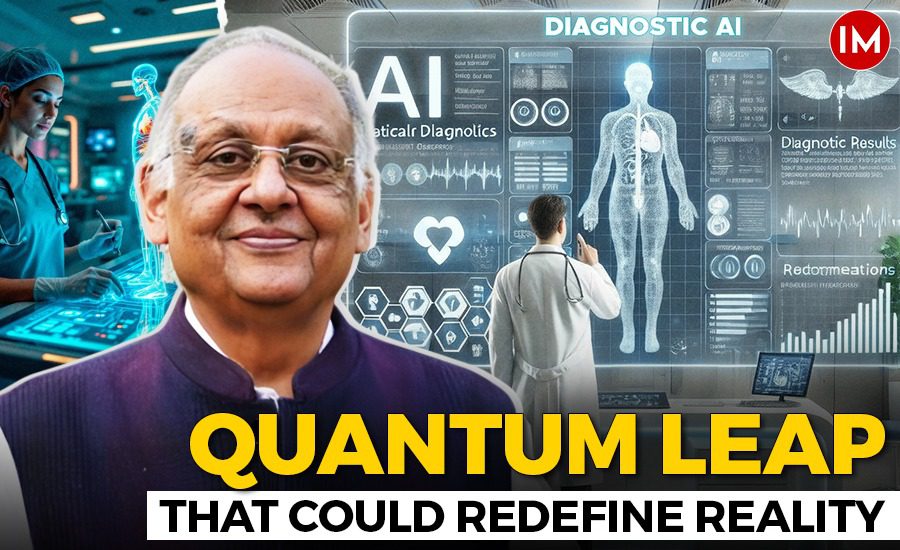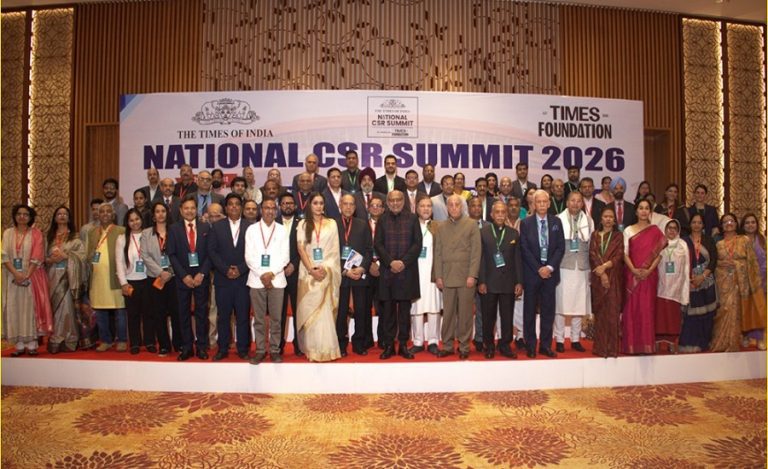Imagine your phone downloading a movie before you blink. Imagine a doctor designing the perfect cancer drug — not after years of trial and error, but in a few minutes, customized for your body. Imagine a system predicting floods or pandemics weeks in advance with near-perfect accuracy.
This may sound like science fiction. But it’s exactly the kind of future quantum computing could make real. It’s not just a faster computer — it’s a completely new way of thinking about how the universe processes information.
From Bits to Qubits — The New Alphabet of Computing
For the last 70 years, all our devices — from calculators to smartphones to supercomputers — have lived on one simple idea: everything can be broken into bits, tiny switches that are either 0 or 1. Every selfie, WhatsApp message, and Google search is just a long string of these 0s and 1s.
Quantum computers, however, use qubits, and qubits don’t play by the same rules. They can be 0 and 1 at the same time — something possible only in the strange world of quantum physics.
To imagine it, think of a coin spinning in the air — it’s both heads and tails until it lands. That’s how a qubit behaves. Now imagine thousands of such spinning coins, all influencing each other in real time. That’s the magic — and the mystery — of quantum computing. It can explore millions of possibilities simultaneously.
Where We Are Today
You won’t find a quantum computer in any office yet. They still live inside carefully controlled laboratories, surrounded by a maze of wires and kept at temperatures colder than deep space. The machines are fragile, delicate, and need constant attention — more like premature infants than fully grown computers.
But the pace of progress is astonishing. What seemed a far-off dream even a few years ago is now turning into a visible race. Researchers across the world are learning how to make qubits more stable, more accurate, and capable of handling real-world problems. Tech giants are investing billions. Governments are setting up national missions. Universities are training the next generation of quantum scientists. Something big is beginning to stir.
And now a new dimension is opening up — the meeting of quantum computing and artificial intelligence. It’s like giving wings to an already powerful mind. AI learns and reasons, while quantum machines can explore millions of possibilities at once. Together, they could help us understand nature, medicine, and the human brain in ways that today’s computers simply cannot. We may soon see early examples of this partnership — machines that learn faster, predict more accurately, and create solutions no human could design alone.
The story of quantum computing today is not about gadgets or headlines. It is about exploration — a quiet, determined effort by scientists, thinkers, and dreamers to push the limits of what computing itself can mean. We are not merely building faster machines; we are learning a new language of reality. And as this language matures, it will start to speak to us — through AI, through science, and through everyday life — in ways that could transform the world around us.
How It Could Change Our Lives
Let’s bring it closer to home:
i) Medicine: Today, drug discovery is like guessing a lock combination by trying every key one by one. A quantum computer can test all combinations at once — saving years and billions. That means faster cures, personalized medicines, and even AI doctors that simulate your body’s reactions before prescribing anything.
ii) Finance: Imagine a system that instantly detects fraud across millions of transactions or finds the best investment plan based on global data. Quantum computing could reshape banking, insurance, and markets.
iii) Climate and agriculture: It could model complex weather systems, predict droughts, and design seeds that thrive under changing conditions — helping farmers and saving lives.
iv) Daily life: Your digital assistant will get supercharged, understand you like a friend who truly “gets” you, access immense amounts of data, and consider millions of options before responding to your questions or commands. Tools like Google Maps could plan routes not just based on traffic but also on parking, weather, and your appointments — all at once.
Quantum computing won’t just make things faster; it will make them smarter — in ways we can barely imagine.
But There’s a Flip Side
Every breakthrough carries its shadows. Quantum computers could break most of today’s encryption — the locks that keep your banking apps, Aadhaar data, and government files safe. With enough quantum power, even the most secret passwords could be cracked in seconds. That’s why cybersecurity experts are already racing to invent quantum-proof encryption before it’s too late.
Then there’s the power gap. The first nations or corporations to master quantum computing will gain enormous strategic advantages — in defence, finance, and even politics. It could deepen global inequalities if access stays limited to the powerful few.
And finally, when quantum meets AI, it may create intelligence beyond human comprehension — machines that think, reason, and evolve faster than humans can monitor. The science fiction nightmare of machines taking over, in the quantum-powered AI-driven world, could become a reality. This makes it more important than ever that humanity, not machines, sets the direction. How to do this is the billion-dollar question!
Our Future Will Depend on Our Ethics
Let’s picture two scenes — both possible in the 2030s.
Scene 1:
A hospital in Delhi uses a quantum-powered AI to scan a patient’s genes and design a tailor-made cancer drug within hours. The patient recovers quickly, at one-tenth the cost.
Scene 2:
A hacker group somewhere uses a quantum computer to break into banks worldwide, draining millions in minutes before the system even detects them.
The same technology. Two outcomes. The difference? Human intention and preparedness. The key question: are we doing enough to embed a steel moral fibre of ethics and values in humans, and make responsible and ethical conduct an immutable element in developing technologies and designing machines?
India’s Quantum Journey
India is not standing still. The National Quantum Mission (NQM), launched in 2023, is investing ₹6,000 crore in research, labs, and startups. Institutes like IIT Madras and IISc are already working on quantum algorithms, sensors, and secure communication lines.
But building machines alone isn’t enough. We need to build people who understand this technology — scientists, engineers, policymakers, teachers, and communicators who can bridge the gap between the complex and the common. Just as “Digital India” began with computer literacy, “Quantum India” must begin with quantum literacy — knowing what this technology means for our jobs, our privacy, and our future.
Way Forward
We can’t stop the quantum revolution — but we can shape it:
i) Learn before we leap: Schools, colleges, and media should simplify and spread awareness about this technology.
ii) Protect our data: Governments and companies should develop and adopt quantum-safe encryption early.
iii) Use it for good: Focus on health, sustainability, and human welfare — not just profit or power.
iv) Collaborate globally: Quantum computing is too powerful for any one nation to control. Humanity should share its benefits and responsibilities.
Every time humanity has made a “quantum jump,” the world has changed — fire, printing, electricity, the Internet, AI. Now we stand before another.
The question is not whether we’ll build quantum computers — we surely will. The real question is whether we’ll build a wise world to use them.
































